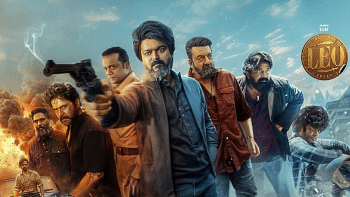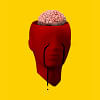'Dear Zindagi': On love, life and mental well-being

Director Gauri Shinde's "Dear Zindagi", released in 2016, stands out as a remarkable example of the power of storytelling in fostering meaningful discussions. Through a meticulously woven narrative and finely etched characters, this film adeptly addresses the stigma associated with therapy while emphasising the importance and relevance of mental health in our lives.
On World Mental Health Day, today, let us take a moment to revisit this gem of a movie, to acknowledge its noteworthy contribution to the South-Asian discourse surrounding mental well-being.
"Dear Zindagi" revolves around the life of Kaira (played by Alia Bhatt), a young and successful cinematographer. As the story unfolds, we get a closer look at how she grapples with abandonment issues and emotional struggles, which threaten to undermine her apparent success. The character's issues can echo many of ours on a deeply personal level, as we venture into keeping our emotional well-being concealed behind the facade of normalcy and seemingly successful lives. Kaira's story hits very close to home, serving as a reflection of our own experiences. The character becomes strikingly relatable when she hesitates to openly acknowledge her troubles, either due to the fear of being judged or simply because it makes her feel weaker.
Kaira's journey takes an unexpected turn when she meets Dr Jehangir Khan (Shah Rukh Khan), a compassionate therapist, who takes her on a reflective journey of rediscovering herself. "Dear Zindagi" deserves applause for portraying therapy in a sensitive and authentic manner, devoid of labels. It normalises therapy by communicating that seeking help is a sign of strength and wisdom. Dr Khan, with his unconventional and empathetic approach, challenges societal stigmas surrounding therapy. His guidance and support serve as a testament to underscore the importance of seeking professional help while dealing with emotional issues.

Therapy portrayed in "Dear Zindagi" is an eye-opener for South-Asian households. This is depicted subtly in a scene where Kaira's domestic help is initially confused with the idea of seeking therapy but the analogy comparing the mind to other body parts instantly prompts her to say that everyone should visit therapists. The entire approach is conversational and does not throw diagnostic jargon, thereby making it simple for the audience to understand. It further signifies that therapy is not just for those with severe mental illnesses but for anyone seeking personal growth and understanding.
Dr Khan represents the ideal and eccentric, therapist who not only listens but also connects with his patients on a personal level. This portrayal signifies the value of the therapeutic alliance – where trust and understanding between the therapist and the patient are crucial for the healing process. It demonstrates that therapy is not about fixing someone but rather about helping them understand and accept themselves better.
In one scene, when Kaira falls off her bicycle and asks for help, Dr Khan paddles away carefree because their session is over, which signals what therapy feels like; making one capable of helping themselves.
The film also sheds light on family issues through Kaira's strained relationship with her parents and her struggles to communicate with them. It reflects the abandonment and attachment issues she faces as an adult. Family dynamics often remain at the core of an individual's emotional struggles, and the film's portrayal of these issues can kindle conversations about the importance of familial support in one's mental well-being journey. It manages to talk about the 'elephant in the room'; a reality check for initiating these conversations and addressing the issues that make us uncomfortable.
Shinde uses various elements to explore the process of self-discovery and healing through therapy. One of the most striking scenes involves Dr Khan referring to the 'kabaddi' game to explain the concept of mindfulness. This scene captures the essence of the film's message – that we should be fully present in our zindagi (life), by cherishing each moment and confronting our inner conflicts.
The film beautifully captures the essence of reinstating mental well-being as a continuous process. Kaira's journey is not a linear one, and she faces setbacks and challenges along the way. It is not just about confronting her past but also about embracing her imperfections and understanding that they are a part of who she is. This is a stark contrast to the typical Bollywood formula, where problems magically disappear by the end of the movie. "Dear Zindagi" acknowledges that personal growth and mental well-being are ongoing endeavours, and that it's okay to have moments of doubt and vulnerability.
Laxman Utekar's cinematography and Amit Trivedi's music further enhance the storytelling that remains etched in our memories. The coastal backdrop of Goa, with its serene beauty, complements the film's theme of self-discovery and healing, while the lively and bustling city of Mumbai resonates with Kaira's ambitions as an independent woman. In addition to the powerful narrative, the film's dialogues are insightful and thought-provoking.
"Dear Zindagi" is a heartfelt love letter to life itself, a film that celebrates the beauty of imperfection and the journey of self-discovery. It serves as a reminder of the importance of mental well-being, the significance of therapy, and the value of self-acceptance. It normalises the concept of therapy because difficulties do not necessarily make one strong, it is the attempt to heal that does.

 For all latest news, follow The Daily Star's Google News channel.
For all latest news, follow The Daily Star's Google News channel. 









Comments